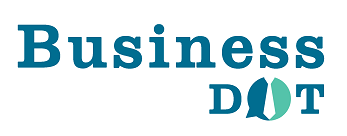In the fast-paced and ever-evolving world of business, organizations, particularly small and medium-sized enterprises (SMEs), are constantly challenged by the intricate demands of human resources. From managing complex payroll and benefits to navigating an ever-changing landscape of regulatory compliance, HR can consume significant time, resources, and expertise that many businesses simply don’t have readily available. This is precisely where the strategic value of a Professional Employer Organization (PEO) becomes undeniable.
A PEO is more than just an outsourced HR provider; it’s a collaborative partner that enters into a “co-employment” relationship with your company. This unique model allows your business to retain full control over its core operations, employee management, and company culture, while the PEO takes on the vast majority of administrative HR responsibilities and liabilities. By leveraging the PEO’s specialized knowledge, advanced technology, and collective buying power, businesses can free themselves from administrative burdens, mitigate risks, and gain access to resources typically reserved for much larger corporations.
Demystifying the Co-Employment Model: How PEOs Work
The co-employment relationship is the cornerstone of the what is a PEO model. It’s often misunderstood, but its simplicity is key to its effectiveness:
- Client Company (You): You remain the primary employer, responsible for the day-to-day supervision of your employees, defining their job duties, setting their wages, managing performance, and fostering your unique company culture. You retain full control over your business strategy and operational decisions.
- Professional Employer Organization (PEO): The PEO becomes the “administrative employer of record” for specific purposes, primarily related to payroll, benefits, and HR compliance. This means the PEO handles the formal administrative tasks, such as remitting payroll taxes under its own Federal Employer Identification Number (FEIN), providing and administering employee benefits, and managing workers’ compensation. The PEO also assumes certain legal liabilities associated with these administrative responsibilities.
This shared arrangement means that employees are, in a practical sense, employed by both entities. For the employee, this often translates to a more robust benefits package and professional HR support, while the client company enjoys reduced administrative overhead and enhanced compliance.
A Spectrum of Services: The PEO Advantage
PEOs offer a comprehensive suite of services designed to cover virtually every aspect of human resources management. These typically include:
- Comprehensive Payroll Management: This goes beyond simply cutting checks. PEOs handle all aspects of payroll, including accurate calculation of wages, overtime, and deductions; timely direct deposits; tax withholding, reporting, and remittance (federal, state, and local); year-end W-2 processing; and unemployment insurance claims management. This ensures accuracy and compliance, freeing up your valuable time.
- Superior Employee Benefits Administration: One of the most compelling reasons businesses partner with PEOs is access to top-tier, affordable employee benefits. PEOs leverage the collective buying power of their large client base to negotiate favorable rates for health, dental, and vision insurance, 401(k) plans, life insurance, disability coverage, and other ancillary benefits. They also manage all the complexities of benefits enrollment, claims resolution, and compliance with regulations like the Affordable Care Act (ACA), COBRA, and ERISA.
- Robust HR Compliance and Risk Management: The legal landscape of employment is a minefield of regulations, from federal laws like FLSA, ADA, and FMLA, to ever-changing state and local ordinances. PEOs employ dedicated compliance experts who continuously monitor these laws, providing guidance, developing compliant policies and employee handbooks, and assisting with complex issues like disciplinary actions, terminations, and workplace safety (OSHA compliance). This significantly reduces your risk of costly fines, penalties, and lawsuits.
- Strategic HR Support and Consulting: Beyond the administrative, PEOs offer strategic HR guidance. This can involve developing HR policies tailored to your business, assisting with performance management systems, providing employee relations support (conflict resolution, grievance procedures), and even offering talent management strategies to help you attract, develop, and retain your workforce. They act as an extension of your team, providing expert advice when you need it most.
- Workers’ Compensation Management: PEOs typically provide workers’ compensation coverage, often at more competitive rates than individual businesses could secure. They handle all aspects of claims management, from initial reporting to return-to-work programs, and actively work to implement safety programs to prevent accidents, further reducing your risk and associated costs.
- HR Technology and Reporting: Modern PEOs utilize sophisticated Human Resources Information Systems (HRIS) that provide a centralized platform for all HR-related data. This includes employee self-service portals for viewing pay stubs, managing benefits, and requesting time off, as well as robust reporting capabilities for employers, offering valuable insights into workforce data.
- Recruitment and Onboarding Assistance: Some PEOs offer support in the talent acquisition process, from creating effective job descriptions to managing applicant tracking systems and conducting background checks. They also streamline the onboarding process, ensuring all new hire paperwork is completed accurately and compliantly, setting new employees up for success.
The Tangible Benefits of a PEO Partnership
The advantages of partnering with a PEO extend beyond simply offloading HR tasks. They directly impact a business’s bottom line and strategic capabilities:
- Significant Cost Savings: PEOs achieve economies of scale that individual businesses cannot. This is particularly evident in group health insurance rates, workers’ compensation premiums, and the cost of HR software and expertise. Studies by the National Association of Professional Employer Organizations (NAPEO) consistently show a substantial return on investment (ROI) for PEO clients, often in the realm of 27% in cost savings alone.
- Increased Efficiency and Productivity: By taking over the burdensome administrative tasks, PEOs free up business owners and internal staff to focus on revenue-generating activities, strategic planning, and core business operations. This re-allocation of time and resources directly contributes to increased productivity and profitability.
- Enhanced Employee Attraction and Retention: Offering a competitive benefits package is critical in today’s tight labor market. PEOs enable even small businesses to provide benefits that rival those of large corporations, making them more attractive to top talent and significantly improving employee morale and retention. NAPEO data suggests PEO clients experience 10-14% lower employee turnover.
- Reduced Regulatory and Legal Risk: The complexity of employment laws is a constant concern for businesses. PEOs act as a shield, providing expert guidance and ensuring compliance with a myriad of federal, state, and local regulations. This proactive approach dramatically reduces the risk of costly audits, penalties, and legal disputes.
- Expert HR Guidance and Support: Access to a team of seasoned HR professionals provides invaluable guidance on everything from employee relations and performance management to organizational development. This expertise, often unaffordable for SMEs to hire internally, is a core benefit of the PEO model.
- Improved Business Resilience and Growth: Businesses that partner with PEOs are shown to grow 7-9% faster and are 50% less likely to go out of business than comparable non-PEO companies. This resilience is attributed to the stability, compliance, and enhanced resources that a PEO partnership provides, allowing businesses to navigate challenges and seize growth opportunities more effectively.
The Flourishing PEO Industry
The PEO industry has seen remarkable growth, evolving into a sophisticated and essential component of the business ecosystem. With hundreds of thousands of client companies and millions of co-employed individuals, the industry generates hundreds of billions in annual revenue. This expansion is a testament to the undeniable value PEOs deliver in simplifying HR, mitigating risk, and enabling business success in an increasingly complex economic environment.
Choosing Your Ideal PEO Partner
Given the significant impact a PEO can have on your business, the selection process is paramount. Consider these factors when making your choice:
- Accreditation and Reputation: Look for PEOs accredited by the Employer Services Assurance Corporation (ESAC) or certified by the IRS as a Certified Professional Employer Organization (CPEO). These accreditations signify financial strength, adherence to best practices, and rigorous compliance.
- Service Scope: Ensure the PEO’s offerings align perfectly with your specific HR needs and long-term business goals. Do they offer specialized services relevant to your industry?
- Pricing Structure: Understand their fee model (e.g., percentage of payroll, per-employee per-month fee) and ensure transparency with no hidden costs.
- Technology and User Experience: Evaluate their HR technology platform. Is it intuitive for both administrators and employees? Does it integrate with your existing systems if needed?
- Client Support and Communication: Assess the quality of their customer service. Will you have a dedicated account manager? How responsive are they to inquiries?
- Industry Expertise: Some PEOs specialize in particular industries. If your business has unique regulatory or HR challenges, a PEO with relevant industry experience can be a significant asset.
- Scalability: Choose a PEO that can grow with your business, adapting their services as your needs evolve.
In conclusion, for businesses grappling with the complexities of modern HR, a Professional Employer Organization offers a compelling and comprehensive solution. By strategically outsourcing administrative burdens and leveraging expert resources, businesses can unlock greater efficiency, reduce risk, attract and retain top talent, and ultimately, dedicate more focus to driving their core mission and achieving sustainable growth. A PEO isn’t just an expense; it’s an investment in your company’s future.

